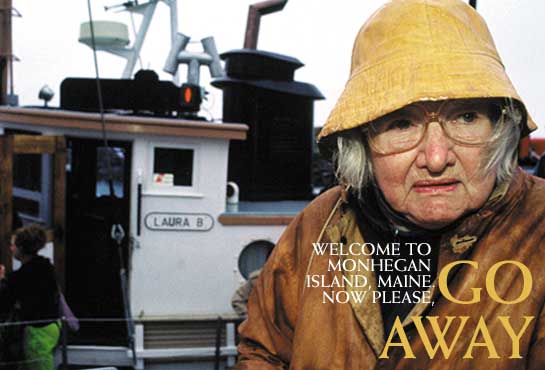MAINE : "LOBSTER FEST or FIGHT" ?
Labels:
maine lobster
0
comments
The Lobster Industry is presenting a United Front against a
proposal aimed at helping fishermen and the Portland Fish Exchange by allowing trawlers to sell in Maine the lobster that inadvertently ends up in nets. Supporters of the bill contend Maine is losing out because trawlers are taking their catch to Massachusetts where it's legal to sell the lobster. That has led to a smaller volume of fish auctioned and fewer fish-processing jobs, among other things. But lobstermen on Tuesday said Maine's $300 million lobster fishery is far too valuable for lawmakers to pass a bill that would lead to more lobsters being landed by trawlers.
It could imperil the future of the state's signature seafood, they said."It's too great of a risk to take," said lobsterman John Butler, who was flanked by lobster industry officials at a news conference on the Portland waterfront.By federal law, fishermen are allowed to keep up to 100 lobsters per day, or 500 per trip, that are hauled up in their nets.In 2005, Maine fishermen sold 120,000 pounds of those lobsters in Massachusetts, according to the National Oceanic and Atmospheric Administration. That's a tiny fraction of Maine's total 2005 harvest of 67.3 million pounds. Hank Soule, manager of the Portland Fish Exchange, said that by his accounting, lobsters landed by trawlers in offshore waters amount to about 2 percent of total landings.
The bill might boost those levels to 3 percent, he said."We don't think a one percent increase in the lobster harvest is going to have any impact on Maine's inshore lobster fishery. If we did think that it would, we wouldn't be bringing this forward," Soule said. Lobstermen contend the proposal would open the door to more trawlers targeting lobster. They also said the offshore fishery is especially important because large, female lobsters found in those waters produce millions of eggs. Finally, they said, the bill offers no guarantees that the trawlers would go to the Portland Fish Exchange instead of Massachusetts.
Fishermen still may go to Massachusetts because diesel fuel is cheaper there, they said. Nonetheless, lobstermen don't like the idea of any proposal that has the potential to weaken the fishery. Despite bountiful lobster catches in recent years, they're worried that there's already too much pressure on the lobster fishery.
As it stands, lobster represents Maine's most important fishery and one of the few fisheries that remains relatively healthy in New England. "We've practiced very good husbandry over the years. We'd like to think future generations will benefit from our husbandry," Butler said.Bob Baines, who serves on the board of the Maine Lobstermen's Association, agreed. "Please don't undermine Maine's lobster conservation," he said.














